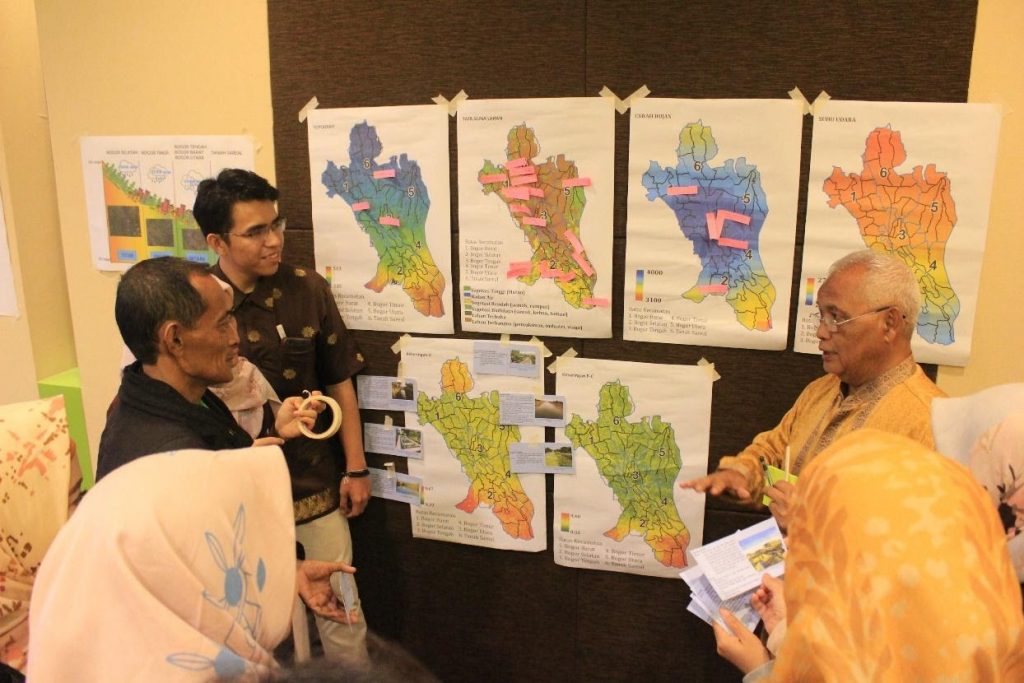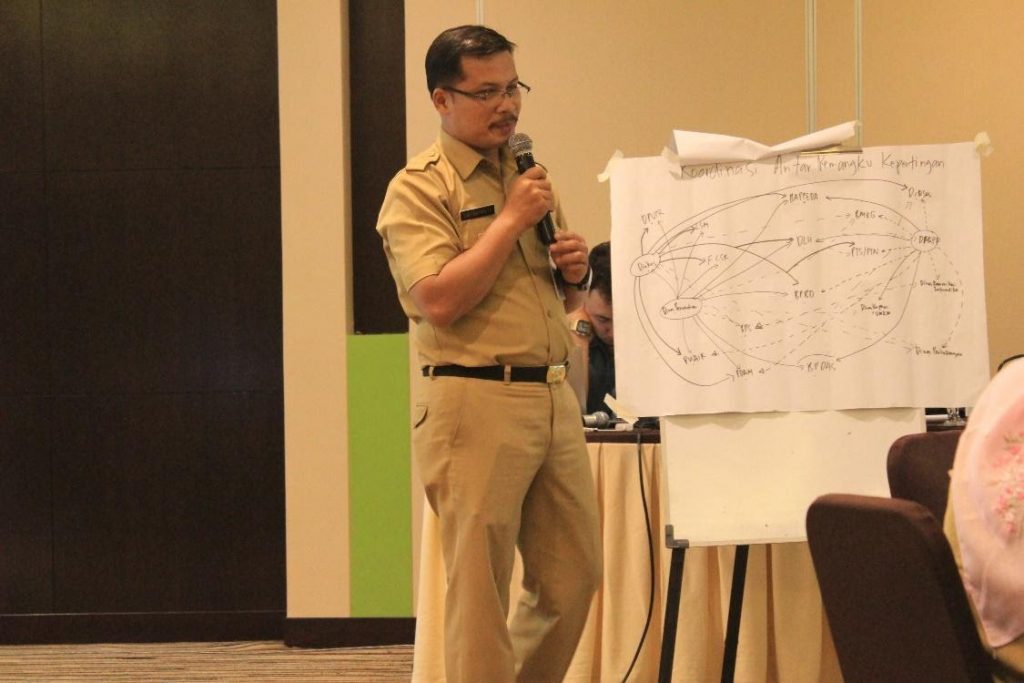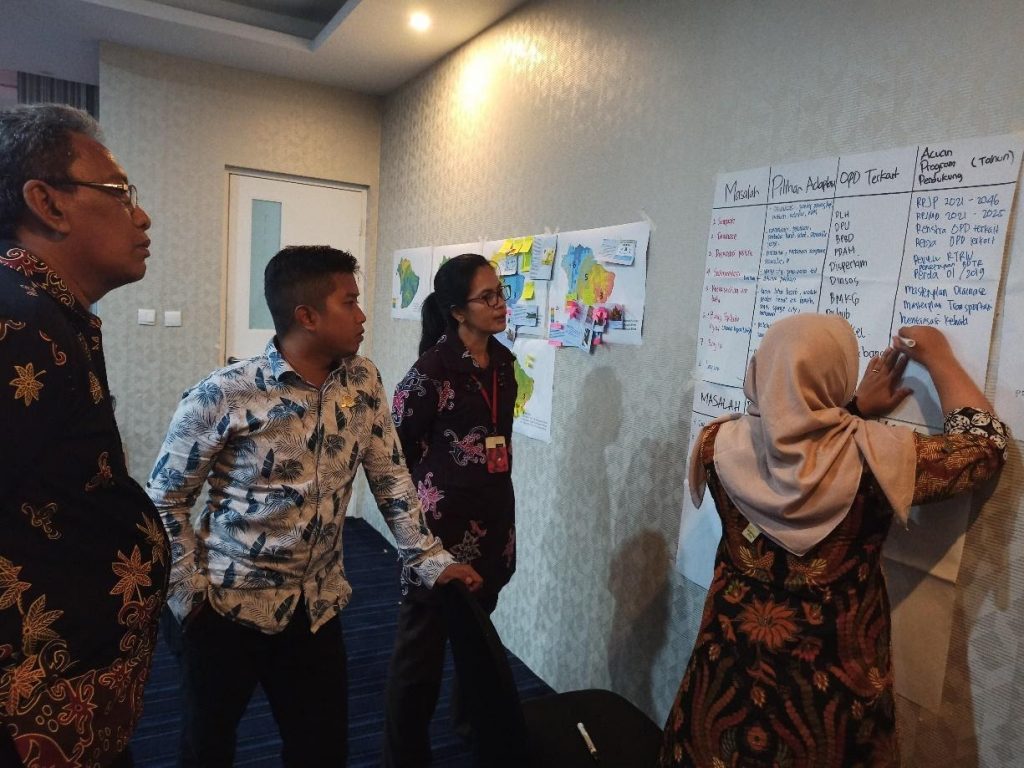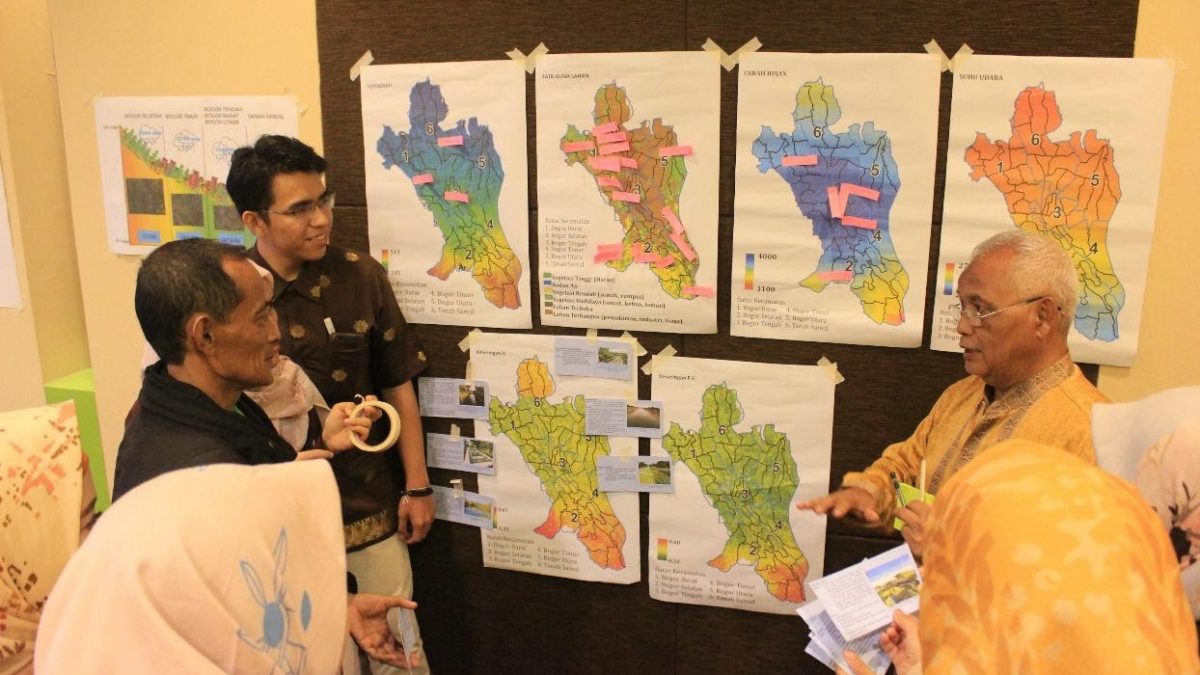
GHG emissions baselines established in model cities of Narayanganj and Rajshahi with Urban-LEDS II support
March 6, 2020
Reporting a crucial stepping stone for local climate action planning in Rwanda
April 15, 2020In partnership with City Governments of Bogor and Balikpapan, ICLEI-Local Governments for Sustainability Southeast Asia Secretariat (ICLEI SEAS) held a validation workshop on climate risk and vulnerability assessment (CRVA). The activity brings together representatives from the local governments, development partners, the academe, and other NGOs to review the findings of the CRVA and further identify climate resilience strategies to address climate risks and vulnerabilities of the two cities.

ICLEI Southeast Asia Secretariat (ICLEI SEAS), in partnership with the City Government of Bogor and Balikpapan, conducted validation workshops for the climate risk and vulnerability assessments (CRVA) on 18 February 2020 at Santika Hotel-Botani Square in Bogor City and on 5 March 2020 at Platinum Hotel & Convention Hall in Balikpapan City.
The workshops aimed to carry out the validation and verification of the results of the climate risks and vulnerabilities and current and future hazard-specific maps. The activities also brought together representatives from the cities’ development partners, local universities, and non-government organizations (NGOs) to gather recommendations in formulating the two cities’ climate resilience strategies, i.e., eco-drainage, infiltration wells, water terrace, water reservoir, water changing areas, house on stilts, retention pond, etc. are adaptation options for flood hazard.
“In line with the vision and mission of Balikpapan City development, the policy of climate change adaptation and disaster risk reduction shall obey the commitment to keep 52% of the total land area as natural reserves. In addition, we shall adopt the concept of ecological city and not to open new mining areas”, said Mr. Agus Budi Prasetyo, Head of Local Development Planning and Research Agency of Balikpapan City. He also shared that their city is preparing the technocracy of local mid-term development planning for the next period.
“We hope the CRVA results and recommendations can be used as references to develop plans for the Balikpapan City Development period 2021-2025,” he added.
Meanwhile, Bogor City also presented an ambitious city development plan towards becoming a resilient city. Bogor City Government has set up several climate resilience strategies for the city development period 2019-2024.
“Even though we have already determined climate resilience strategies, we think that the CRVA results and recommendations assisted by ICLEI SEAS can strengthen our climate resilience strategies by considering our biophysical conditions, the available essential resources, the local knowledge, and capacity,” shared Mrs. Sofie Linawati, Section Head of the Local Development Planning Agency of Bogor City.
During the workshops, everyone actively participated in validating and verifying the current (2020) and future (2030-2050) hazard-specific maps. The two global climate models,CSIRO and MIROC, with one type of climate change scenario, particularly RCP 4.5, were used to forecast current and future hazard-specific maps by referring to data of climate factors and climatic variables period 1991-2020.
Further, the participants were grouped to discuss and identify the long and short term priority issues and proposed area-based adaptation, priority areas for climate resilience strategies, when these can be implemented and the corresponding financial needs of the cities.
The CRVA results and recommendations can then enrich the climate resilience component of the Cities Government of Bogor and Balikpapan’s action plans as the model cities under the Urban-LEDS II Project which will eventually support Indonesia’s Nationally Determined Contributions (NDCs) and National Adaptation Plan (NAP).

Mr. Dwi Sutanto from Health Agency of Bogor City presented the horizontal coordination of local government organizations and relevant stakeholders in implementing policy of CCA and disaster risk reduction 
Working group of Balikpapan City proposed afforestation, terracing bamboo, installation of early warning system (EWS) as CCA options to address landslides and their effects on communities.
More Stories:

